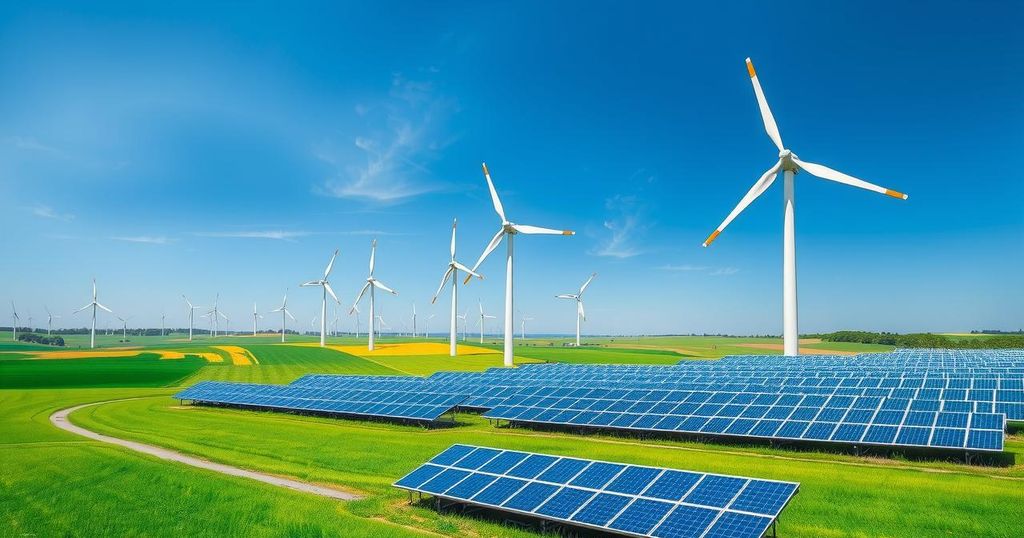The article discusses the implications of the Trump administration’s decision to revoke Iraq’s sanctions waiver, which has intensified Iraq’s energy crisis. It highlights Iraq’s reliance on Iranian natural gas for electricity, the historical context of conflict affecting infrastructure, and the broader geopolitical dynamics influenced by U.S. policies. It calls for urgent U.S. support to help Iraq achieve energy independence following decades of instability.
The revocation of Iraq’s sanctions waiver by the Trump administration has intensified its energy crisis, as it relied on Iran for a substantial portion of its electricity generation. Historically, Iraq has imported natural gas from Iran to produce approximately 10 gigawatts of power, which now poses a significant challenge due to the unreliability of these supplies during winter months.
This policy aligns with the U.S. strategy to exert more pressure on Iran regarding its nuclear program and comes amid broader geopolitical tensions. The expiration of the waiver has compelled Washington to urge Baghdad to establish greater self-sufficiency in energy, despite Iraq’s significant oil reserves and potential for natural gas production.
The Iraq energy sector suffers from decades of conflict and the aftermath of wars, causing severe deficits in infrastructure required for electricity generation. As Iraq strives to produce 28 GW of electricity by summer, experts express skepticism regarding the feasibility of such goals given the country’s historical struggles with energy production and distribution.
An additional complication arises from Iraq’s dependence on gas-fired power plants, reliant on Iranian gas pipelines, which are logistically and financially constraining. Any abrupt cessation of these supplies jeopardizes immediate alternatives and could result in extended power outages, worsening the existing energy crisis.
Moreover, the U.S. aims to leverage this situation to resolve internal Iraqi disputes, particularly with Kurdistan, enabling oil exports, thus diminishing Iranian market influence. Concurrently, there is an expectation for the Iraqi government to diminish ties with Iran, a complex endeavor given Iraq’s sectarian dynamics.
Iraq’s failure to tackle persistent energy issues is largely attributed to external interferences from the U.S. and Iran, compounded by internal challenges such as terrorism, corruption, and political instability. The Jordan-Iraq electricity project, which promises to diversify energy sources, has been hindered by funding and political issues, delaying necessary infrastructure improvements.
Successful completion of this regional electricity grid connection could significantly enhance Iraq’s energy resilience against Iranian supply disruptions. Unfortunately, ongoing governmental issues, including corruption and security threats, continue to plague initiatives that could facilitate energy independence.
Despite possessing vast energy resources, Iraq currently exploits minimal renewable energy sources, generating insignificant percentages from hydropower, solar, and wind. The U.S. stance on expecting rapid self-sufficiency from Iraq is perceived as hypocritical, especially considering its historical lack of support for rebuilding the nation post-conflict.
The Trump administration’s current tactics pressure Iran while neglecting vital support for Iraq. Effective alternatives exist, and the U.S. should reconsider its decision regarding the waiver and actively assist Iraq in curtailing its reliance on Iranian energy. A comprehensive overhaul of Iraq’s energy infrastructure is essential to address the multifaceted challenges that have persisted for over two decades.
To conclude, the U.S. must reevaluate its approach toward Iraq’s reliance on Iranian energy. While the revocation of the sanctions waiver is intended to pressure Iran, it places undue challenges on Iraq, a nation struggling with its energy infrastructure. A collaborative effort involving international stakeholders could facilitate Iraq’s transition towards energy independence, helping to mitigate the profound crises it currently faces.
Original Source: www.arabnews.com




